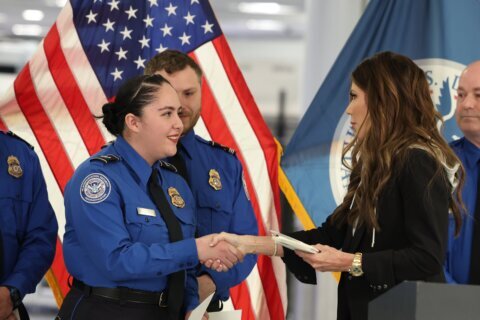Without a trial, prosecutors got the verdict they’d hoped for all along: guilty of first-degree murder.
Jose Reyes Mejia-Varela, 22, pleaded guilty Tuesday morning to killing Jacinta “Patty” Ayala, 32, who was shot as she was opening the Burger King on East Patrick Street on the morning of March 18, 2011. Ayala, a mother of three, was an assistant manager at the fast-food restaurant.
At the plea hearing Tuesday, Deputy State’s Attorney Nanci Hamm detailed how police and prosecutors cracked open the investigation. They started with no security camera footage at the scene and no sign of forced entry at the business.
Mejia-Varela arrived near the Burger King before 5 a.m. the day Ayala was killed, according to his cellphone records. A former manager at the store, he knew that an access hatch on the roof would be unlocked, Hamm said. He jumped on a garbage bin, then to the roof and slid through the hatch and into the manager’s office.
At about 5:25 a.m., Mejia-Varela tried to open the safe, but his previous access code had been disabled, according to prosecutors. The computer didn’t record what numbers were entered, only that an attempt to open the safe had failed.
Also at 5:25 a.m., Ayala was captured on the security camera at Sheetz, only a few doors down, filling her car with gas.
Eight minutes later, at 5:33 a.m., the safe at the Burger King was opened using her code.
At 5:38 a.m., security footage at the nearby Roy Rogers captured a man running from the area of Burger King to a red scooter in the Roy Rogers lot. The man was carrying something that seemed heavy, witnesses would later tell police.
At 5:56 a.m., a co-worker called 911 to report that Ayala had been found lying in a pool of blood, shot in the head.
More than $2,300 was missing from the restaurant safe.
One of the biggest breaks in the case came when detectives connected the Roy Rogers security footage of the red, shiny scooter to Mejia- Varela’s sister.
She had recently bought a red scooter from Braddock Mountain Outfitters. Though Mejia-Varela tried initially to use her as an alibi, she told police that she was sleeping and didn’t know where he was at the time of the crime. Records show her cellphone never left the house that morning.
In the course of the investigation, police used the surveillance videos from surrounding businesses, cellphone records, search warrants and other means to find evidence against Mejia-Varela. At his home in the 400 block of Biggs Avenue, 873 quarters were found. The scooter was there, along with the helmet matching the description given by witnesses. The gun believed to be used to kill Ayala and ammunition were found hidden beneath the floorboards of a staircase in the garage. A pair of shoes and a coat similar to what was captured on surveillance footage was found in the car trunk of Mejia-Varela’s other sister, who lived in Virginia.
After his arrest, Mejia-Varela’s cellmate came to investigators with details of the crime he said he’d learned from Mejia-Varela. They were details only someone who was at the scene of the crime could have known, Hamm said.
“This case was so airtight and strong,” Frederick Police Department spokesman Lt. Clark Pennington said Tuesday morning.
Pennington said the amount of work and cooperation with other agencies during the investigation was extraordinary. Detectives had few leads at the beginning. The Frederick County Sheriff’s Office, Department of Homeland Security, FBI and police agencies in other states all helped with the investigation and arrest of Mejia-Varela, he said.
By Tuesday, “each and every possible question was answered,” Pennington said.
Beyond the police work, Pennington said the department was thinking of Ayala’s family.
“All of our hearts go out to them,” he said.
Mejia-Varela is to be sentenced Feb. 26.
He did not speak at length during the plea hearing. When Judge G. Edward Dwyer Jr. asked if he was pleading guilty because he had committed the crime, Mejia responded, “Yes.”
His attorneys, prosecutors and Dwyer agreed that he could be sentenced up to life in prison with the possibility of parole.
Prosecutors had originally sought life without parole, but agreed to the plea after speaking with Ayala’s family, said State’s Attorney Charlie Smith.
His office also dropped armed robbery and handgun charges against Mejia-Varela on Tuesday.
Smith said the plea was beneficial to members of Ayala’s family in that it allows them to avoid hearings leading up to the March trial date and appeals cases. When a defendant pleads guilty to a crime, he waives almost all grounds for appeal.
Smith said if the judge sentences Mejia-Varela to life, only the governor could grant parole. He said he hopes Mejia-Varela will spend the rest of his life in prison.
“This was a terribly heinous, senseless murder,” Smith said. “He did not need to kill this woman. He could have just stolen what he needed to steal and left.”







